The involvement of global oil and gas giants in Israel’s gas exploration amidst ongoing regional conflicts has brought attention to the intersection of energy interests and geopolitical tensions.
Companies like BP, Chevron, and Caltex have made significant strides in Israel’s gas exploration initiatives, raising debates on economic gains, environmental impacts, and ethical considerations.
BP’s Investment in Exploration
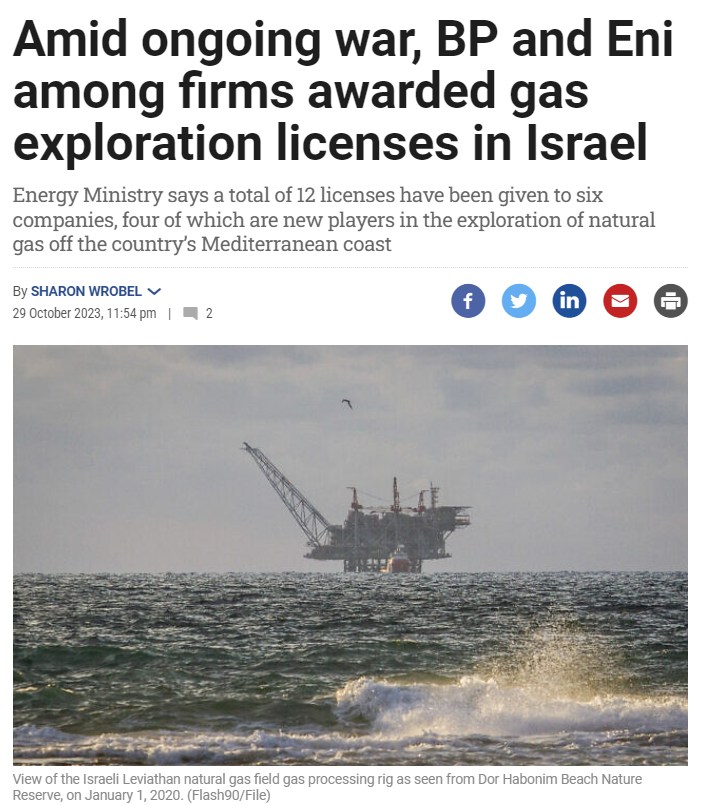
Also See: List of Artists that Support Palestine
British Petroleum (BP) and Eni, a major Italian energy player, emerged as key contenders securing licenses for exploring additional offshore natural gas fields in the Mediterranean. This move, despite ongoing regional turmoil, demonstrates their substantial commitment to investing in Israel’s gas exploration initiatives. Such steadfast involvement signals a vote of confidence in Israel’s resilience amid conflicts, highlighting a long-term strategic vision.
Their exploration endeavors hold a dual purpose: first, bolstering Israel’s energy security by diversifying gas reserves and second, supporting the country’s trajectory toward renewable energies. These endeavors align with Israel’s broader energy goals, aiming to reduce dependence on conventional resources while laying the groundwork for a sustainable energy transition. This strategic alignment not only secures energy supplies but also potentially strengthens Israel’s international standing in the renewable energy landscape.
Chevron’s Role and Impact
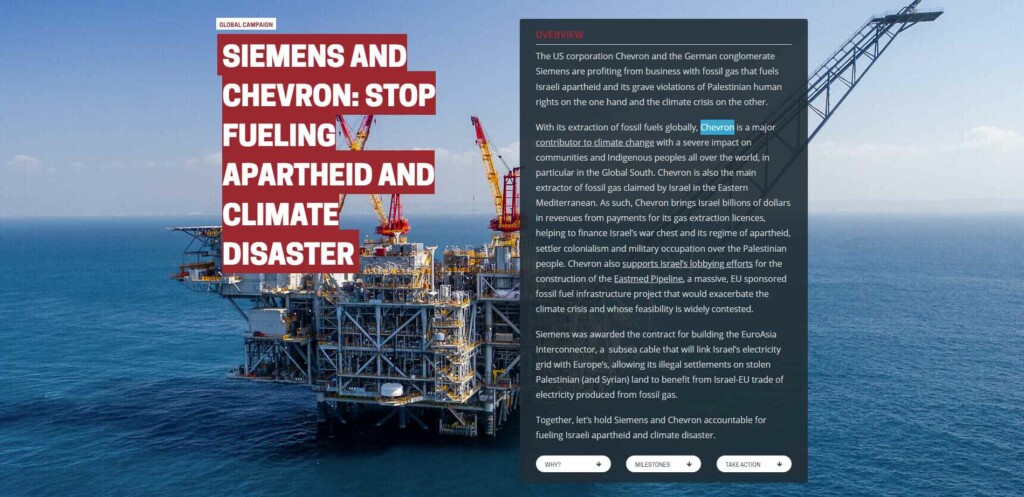
Check Out: How to Support Palestine
Chevron’s presence and operational activities in the Mediterranean involve the supply of gas to both Israel and Jordan from the Leviathan platform, persisting even amidst regional conflicts. While this continuity in supply aids in mitigating energy disruptions, Chevron’s involvement has triggered considerable scrutiny.
The company faces allegations regarding its potential contributions to climate change, primarily through its extraction practices. Additionally, its support for Israel’s extraction policies has drawn criticism, sparking debates on environmental sustainability and geopolitical tensions. These controversies cast shadows on Chevron’s role, intertwining environmental concerns with the complexities of regional geopolitics.
Caltex’s Controversy and BDS Movement
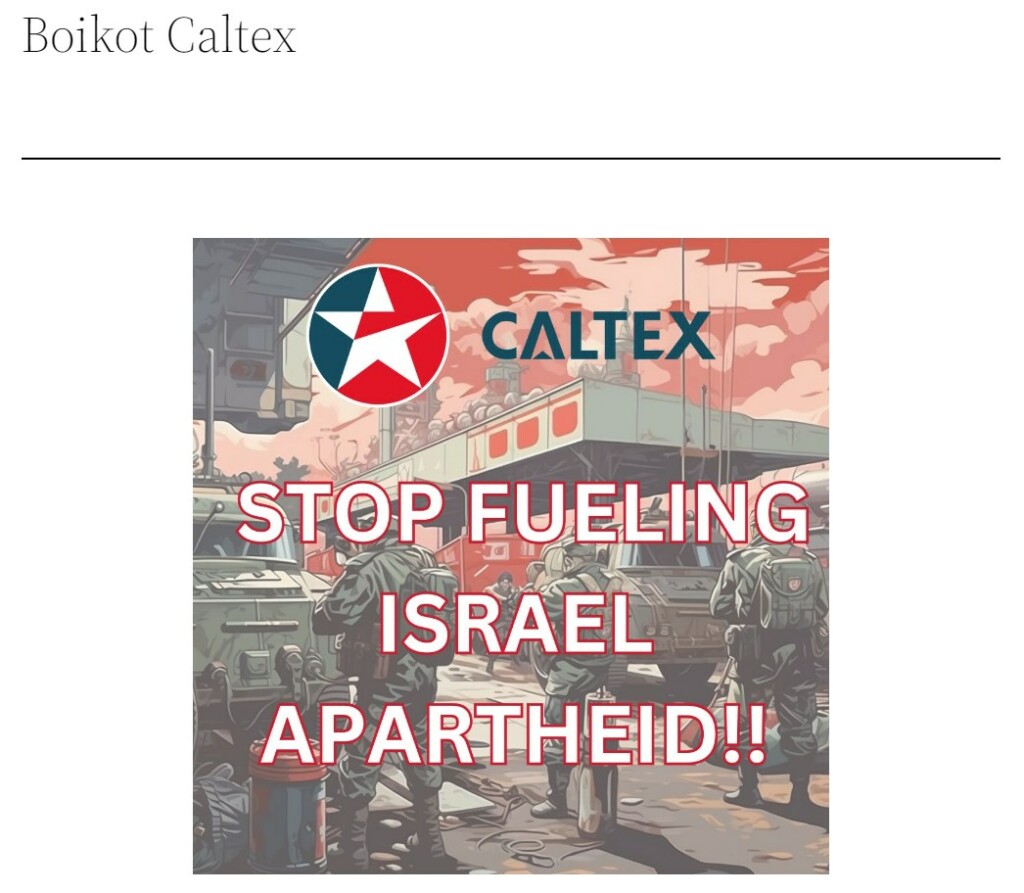
Operating under the brand name Caltex in select regions, Chevron finds itself at the center of controversy, especially within the context of the BDS movement’s calls for boycotts. The movement’s grievances stem from perceived environmental degradation associated with Chevron’s operations and its perceived complicity in Israel’s gas extraction endeavors.
The BDS movement underscores ethical implications, alleging Chevron’s involvement in violations of Palestinian rights due to its support for Israel’s gas extraction activities. This intertwining of environmental activism with geopolitical discourse amplifies concerns about Chevron’s ethical responsibilities and its role in potentially exacerbating regional tensions.
The participation of these oil and gas companies in Israel’s gas exploration underlines the complexities at the intersection of energy, geopolitics, and ethical considerations.
While promising economic gains and energy security for Israel, their activities prompt debates on environmental impacts, human rights concerns, and regional tensions. The ongoing exploration reflects the intricate dynamics shaping global energy endeavors, particularly in conflict-prone regions.

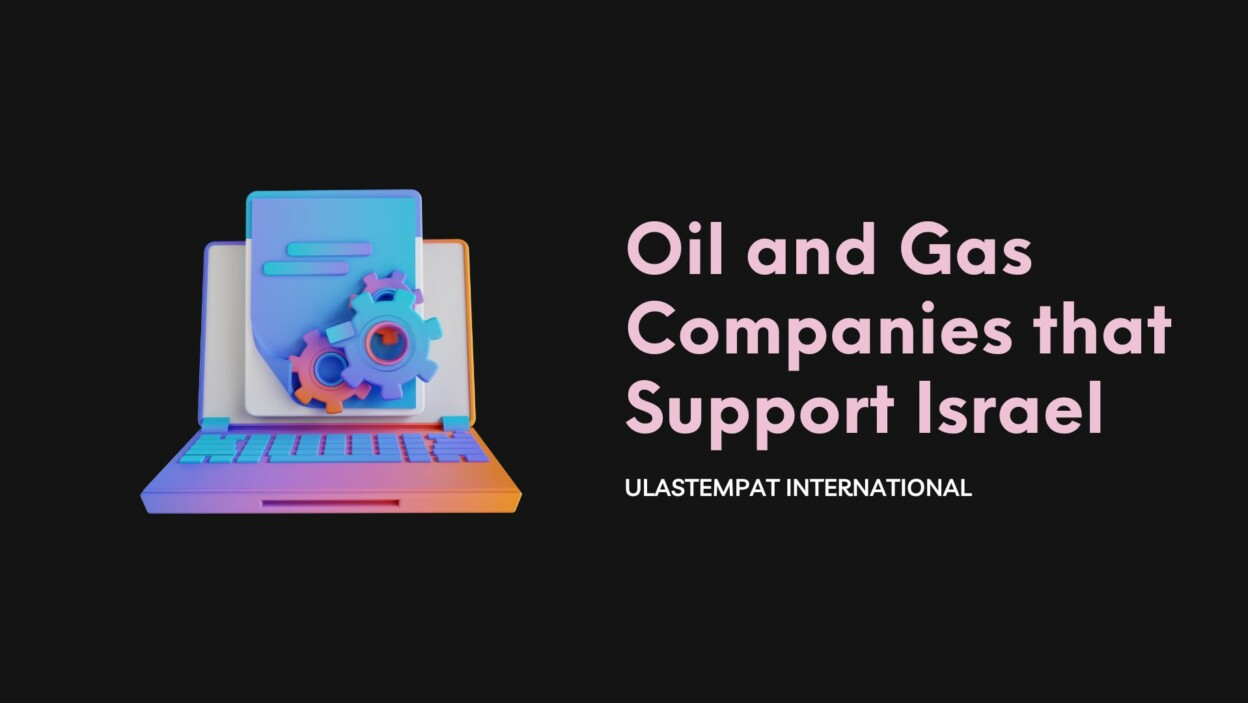
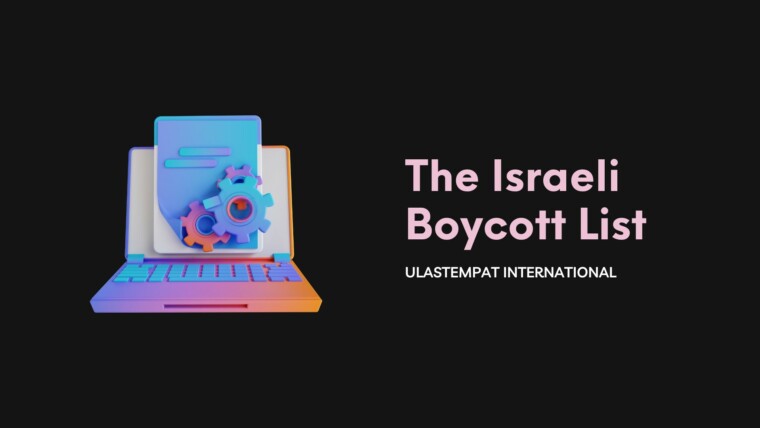
Does Red Bull Support Israel? Decoding the Unraveled Connection
Fast Food Chains Aligned with Israel Support
A&W Stand on Israel-Palestine
Chupa Chups’s Support for Israel: Examining the Details
Does These Firearms Support Israel? Exploring the Unraveled Connection
Does These Tech Brands Support Israel? Decoding the Unraveled Connection
Does These Filmography Support Israel? Understanding the Intricate Ties
Does These Online Business Support Israel? Exploring the Unraveled Connection